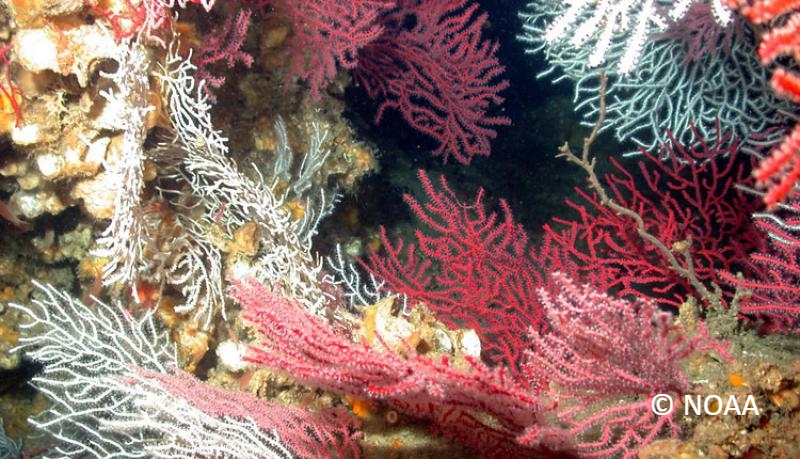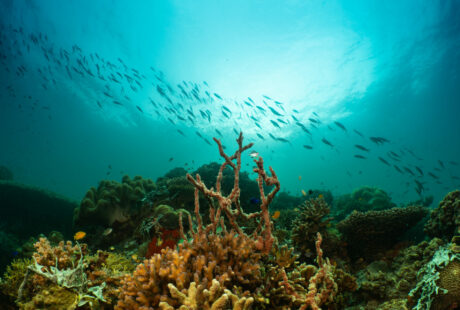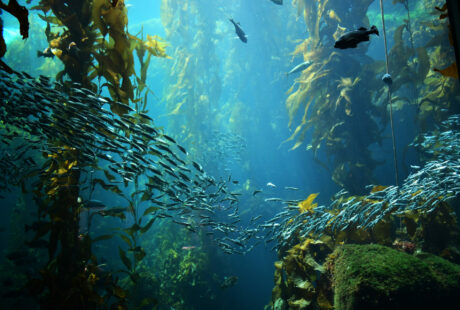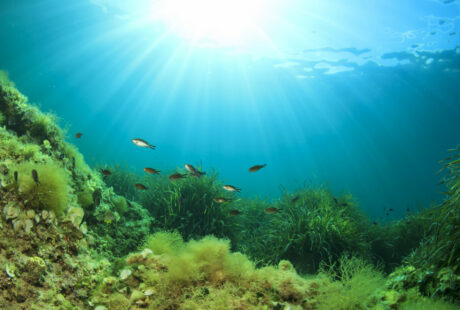The Covid-19 pandemic is having a dramatic impact on people’s health and jobs. As the crisis intensifies across Europe, EU institutions and Member State governments are ramping up financial supports to deal with the economic fallout. Emergency measures are crucial to support people’s livelihoods in these uncertain times. They also provide an important opportunity to look beyond the emergency and plan for a more resilient socioeconomic model, one that provides social well-being, secure green jobs, and promotes the sustainable use of natural resources within planetary boundaries.
The current health crisis has exposed the substantial shortcomings of our current economic model. For years, researchers (see also 1, 2) have linked the emergence of new viruses – such as Ebola, SARS, Zika and now Covid-19 – to biodiversity loss and ecosystem degradation. The destruction of natural habitats caused by unsustainable development has brought people and wild animals hosting pathogens into closer contact, creating the perfect conditions for viruses to be transferred between species.
Covid-19 shows us the importance of preserving ecosystems and biodiversity, and marine biodiversity is no exception. Marine genetic material is crucial for our health – in fact, the test being used to diagnose the Covid-19 virus (and other pandemics like AIDS and SARS) was developed with the help of marine genetic resources from hydrothermal vents. This should cause the international community to consider the long-term human health impact of supporting any action that risks large-scale irreversible loss of biodiversity and the eradication of the genetic material that may be essential to future pharmaceuticals.

A healthy ocean – and thus the resilience of marine ecosystems – is of the utmost importance in combating the climate crisis and delivering a sustainable blue economy. Maritime sector recovery plans, as well as the future development of the blue economy, must safeguard the ocean’s health. The Blue Manifesto, the blue answer to the Green Deal that was launched in January by Seas At Risk and five other European Blue NGOs and supported by over 100 other NGOs, provides a roadmap to achieve healthy seas by 2030 and should guide efforts to build a more resilient and sustainable marine future.
How might this roadmap usefully be applied to our current situation?
1. Recovery investments should support a shift to low-impact fisheries and aquaculture
Like many other businesses, fisheries and aquaculture companies are impacted by the lockdown measures imposed by EU Member States. Governments are applying emergency measures to support the sector in the form of state aid, with the EU-wide agreed ceiling raised to an unprecedented €120,000 (up from €30,000) per undertaking. Even larger EU support is underway and the EU institutions are fast-tracking decisions to use the European Maritime and Fisheries Fund (EMFF) for temporary cessation of fishing activities, suspension or reduction of aquaculture production, and temporary storage of fisheries and aquaculture products. This comes in addition to agreed supports for SMEs to temporarily finance their working capital, including operational costs where income proves insufficient to cover it.
Swift action is necessary to support those whose livelihoods are threatened. Transparency in decision-making must not be sacrificed for speed, however, nor should hasty or damaging decisions set us on a course towards further degradation of the ocean.
Beyond the necessary immediate measures, the public stimulus packages that will be developed to relaunch the economy must be well thought through and developed in a transparent way, with systematic engagement of civil society, and full public access to spending and the conditions imposed. Good governance of funding is essential, as it will have impacts for decades to come. With the impacts of climate and nature breakdown already manifest, decisions on where substantial financial flows should be directed must consider a more resilient food system that remains within ecological limits. Our long-term food security depends heavily on bringing climate change and ecosystem collapse under control. Financial injections – including future EMFF spending – should speed up the transition to ecologically responsible aquaculture and low-impact fisheries, thus reducing habitat destruction, bycatch and greenhouse gas emissions. A healthy ocean with abundant fish stocks is more resilient and can better adapt to climate change while performing its functions and supporting life on earth. Public money must be spent for public good, fulfilling criteria of public interest towards a sustainable future.
2. Shipping sector assistance must target need and decarbonisation
The shipping industry has yet to publicly request immediate, large-scale government and EU support. In the event that it does, there are particular reasons for circumspection in delivering public funds to an industry that routinely uses offshore vehicles and the notorious system of flags of convenience to avoid paying taxes, keep employment costs down, and support weaker regulation. Any assistance should target impacted employees and those shipping companies that provide essential trade and mobility services, in particular where remote or isolated communities rely on the service. Assistance must be conditional on support for efforts by the EU and the International Maritime Organization to reduce underwater noise emissions and whale strikes, and to decarbonise the sector in line with the Paris Agreement’s objective of keeping global heating below 1.5°C.
3. Move further away from sectors that exacerbate pre-existing crises
Industries like the oil and gas sector and deep-sea mining are incompatible with our climate and with healthy marine life. Public money should be used to boost a circular economy with responsible production and clean technologies, a far better alternative than supporting a growing thirst for finite minerals through deep-sea mining, which will cause large-scale marine biodiversity loss and provide profit to just a few. Recovery measures and stimulus packages must take the opportunity to accelerate energy transition and contribute to the decarbonisation of our economy. The decision of the European Investment Bank (EIB) to phase-out any investment in fossil fuel projects after 2021 should be applied to public funding in general. One important step would be to shelve the licensing of any future exploration activities for new hydrocarbon sites in the marine environment. Current exploration activities pose a number of serious risks to marine ecosystems due to noise emissions generated by seismic surveys and potential spills once drilling starts. These sites are often located in fragile ecosystems and important biodiversity hotspots. A ban on exploration activities should go hand-in-hand with political negotiations towards a phase-out of all hydrocarbon exploitation activities in European waters.
Let’s deliver blue change
This pandemic is teaching us how interconnected we truly are, and how closely our health depends on the health of the wider environment. Working with nature rather than against it will boost our resilience. If we are to be less vulnerable to future crises, the post-pandemic economy needs a radical shift towards environmental sustainability. Long-term investments to tackle the economic consequences of the current health crisis need to be transparent and avoid pouring public funds into propping up unsustainable business models. Instead, the European Green Deal must guide recovery plans that encompass the transition to a greener, future-proof economy.
In the midst of this crisis we have to keep the right focus for the day after:
The #EUGreenDeal & the green transition should guide our recovery plan.
We will come out stronger, wiser & ready to continue fighting both the climate & biodiversity crises. https://t.co/xVaLJTwTrU pic.twitter.com/Sj26DPko8K
— Virginijus Sinkevičius (@VSinkevicius) March 27, 2020
Posted on: 7 April 2020



